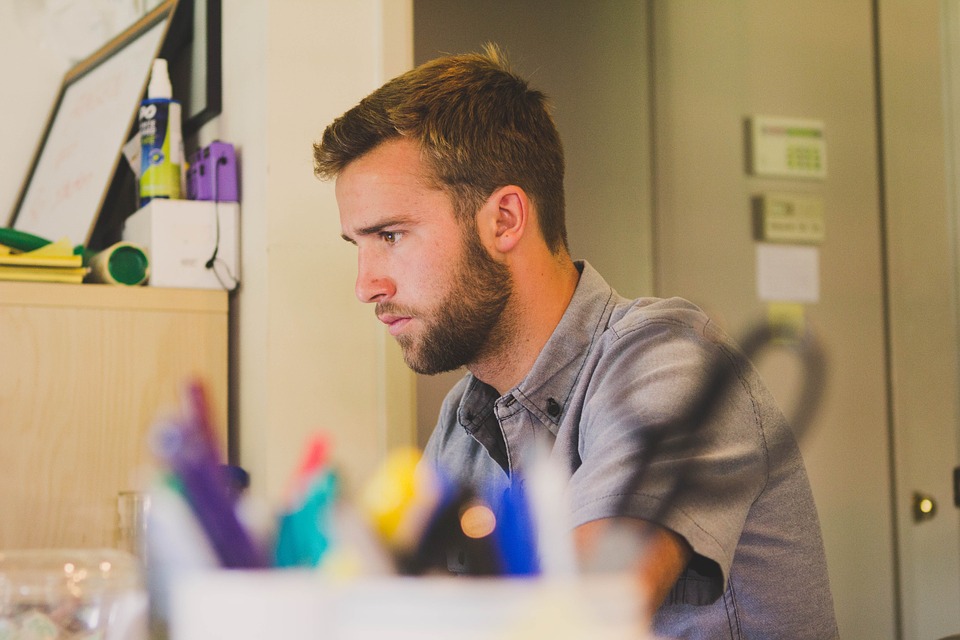
Can’t Concentrate? 5 Insidious Ways Your Office Design Can Make You Less Productive
Article Published by: huffpost.com
Your unproductive behavior could be due to environmental factors and workspace design choices.
By Monica Torres
If you find it hard to get any real work done at your desk, it may not just mean you lack the ability to focus. It could also be your office’s fault.
Office design can influence how much productive work you get done in a day. If you regularly find yourself listlessly staring at your work, you may want to consider whether the following environmental factors and workspace design choices are holding you back from your full potential:
1. The Stale Office Air You Breathe
If you work in an office, most of your time is likely spent indoors. The U.S. Environmental Protection Agency estimates that the majority of Americans spend 90 percent of their time indoors. And the air you are breathing in these enclosed spaces could be impairing your cognitive function.
Bringing more fresh air inside, or having a good ventilation system, is linked to better employee performance, according to a 2017 study by researchers at Harvard University, Syracuse University and SUNY Upstate Medical.
In one experiment, the researchers recruited more than 100 managers, architects and designers in 10 buildings in the U.S. to take cognitive tests at the end of each day. Workers in “green-certified buildings” with good indoor air quality performed 26 percent higher on tests than workers in conventional buildings, even after controlling for annual earnings, job category and level of schooling.
2. The Poor Lighting You Endure
Being close to natural sunlight can make or break an employee’s experience. Employees prioritize natural lighting so much that in a 2018 poll by research firm Future Workplace, they picked it as the top office perk over having a cafeteria, a fitness center, or on-site child care.
And no wonder: A lack of natural sunlight can take a physical toll on our bodies, according to a study on 313 office employees led by Alan Hedge, a professor in the Department of Design and Environmental Analysis at Cornell University. Employees exposed to more natural light reported fewer instances of eyestrain and headaches.
“With increased access to views and natural light from smart windows, workers reported 2 percent greater productivity,” the study stated. “Productivity gains (and losses) are connected to employees’ environmental conditions, so companies that create ideal office environments with abundant natural light and unobstructed outdoors views will reap the dividends.”
3. The Colleagues You Sit With
Human beings are social animals who model the behavior they see around them. Research has shown that people’s moods are contagious. When your co-worker is rude, you will start to catch their bad attitude, too.
Office seating plans may not take into account how proximity to certain types of colleagues can influence your work. In a 2016 Harvard Business School study that analyzed the speed and quality of 2,000 workers’ performance at a tech firm, researchers found that sitting within a 25-foot radius of a high performer could positively boost the performance of colleagues by 15 percent.
But bad habits can be contagious, too. The study found that sitting close to a toxic neighbor — defined as someone who was fired — increased nearby employees’ risk of being fired. “Once a toxic person shows up next to you, your risk of becoming toxic yourself has gone up,” said Dylan Minor, one of the authors of the study.
4. The Temperatures Your Colleagues Can’t Agree On
If you’ve ever been at war with your colleagues over the office thermostat, you know the optimal temperature for getting work done is different for everyone.
In a CareerBuilder survey of 3,321 employees, 53 percent said they were less productive when it was too cold, and 71 percent said productivity suffered when they were too warm.
Even researchers have different conclusions on the ideal workplace temperature. One 2006 study from researchers at Helsinki University of Technology and the Lawrence Berkeley National Laboratory Environmental Energy Technologies Division found that employees’ productivity peaked at around 71.6 degrees Fahrenheit, while a separate Cornell University study found that a warmer 77 degrees Fahrenheit was the optimal temperature at which workers would make fewer typing errors and produce more work.
The U.S. Occupational Safety and Health Administration has no regulation on the temperatures in office buildings but does recommend keeping them between 68 and 76 degrees Fahrenheit, a range that can feel like the difference between a freezer and a sauna, depending on your personal preference.
5. An Office With No Plants Nearby
Perhaps you can thank the succulent on your desk for your ability to stay focused and get work done. Natural greenery in your line of sight is not just good company ―it can also help people concentrate, research on attention restoration theory has found. The theory holds that you can rejuvenate your attention capacity by looking at nature because when we enjoy nature, we are using effortless attention.
A study in the Journal of Experimental Psychology comparing commercial offices with and without plants found that employees at offices with plants reported higher levels of concentration.
In a separate study, published in the Journal of Environmental Psychology, 34 students were assigned to do a reading test that required them to recall the last word in a sentence. The students who were randomly assigned to do this mentally challenging task at a desk with four indoor plants did better on the reading test than those who took the test without plants nearby.
Before you even sit down at your desk and get started on the day’s work, there are a multitude of visible and invisible ways your productivity is being affected by your environment. You can probably add a plant to your desk, but you may not be able to switch to a seat with a high-performer nearby or to a desk near natural light. If you notice your workspace environment is less than ideal, speak up about it to your manager or human resources.
You spend more than 2,000 hours a year at work. It is best for everyone to make those hours count for you.
About Scott Livengood
Scott Livengood is the owner and CEO of Dewey’s Bakery, Inc., a commercial wholesale bakery with a respected national brand of ultra premium cookies and crackers.
Previously, Scott worked at Krispy Kreme Doughnuts for 27 years, starting as a trainee in 1977. He was appointed President of the company in 1992, then CEO and Chairman of the Board.
Scott has served on numerous boards including the Carter Center, the Calloway School of Business and the Babcock School of Management, Habitat for Humanity of Forsyth County, and the Winston-Salem Chamber of Commerce.
He started a new business, StoryWork International, in 2016 with Richard Stone. The signature achievement to date is LivingStories, a story-based program for improved patient experiences and outcomes in partnership with Novant Health.




